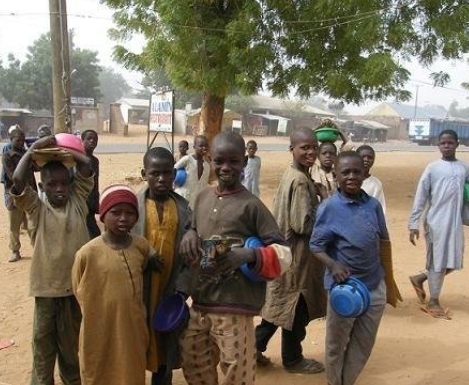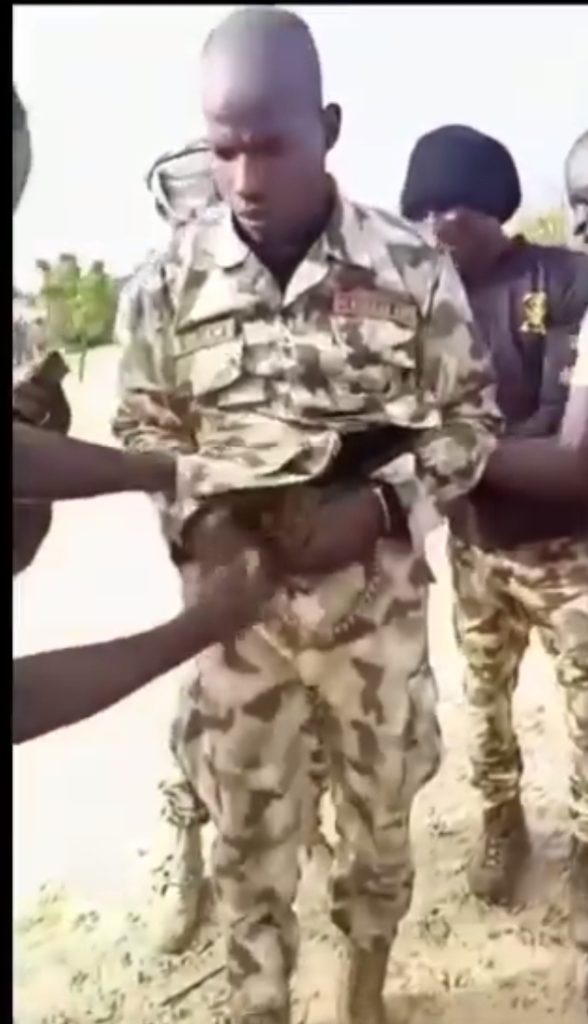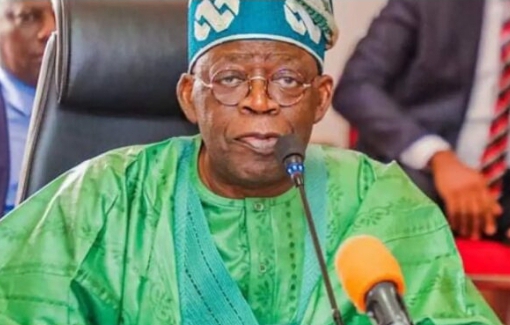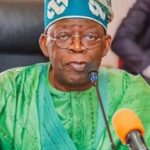By Idowu Ephraim Faleye
The story of insecurity in Nigeria cannot be told without looking at how some deliberate policies and cultural decisions in the far North shaped what is now the breeding ground of terrorism. For a long time, certain ethnic groups in Northern Nigeria built an agenda that was not hidden. It was an agenda that sought to deny Hausa children the tools of modern survival. It was an agenda that insisted that Western education was forbidden and that only a narrow religious form of schooling was acceptable. It was an agenda that turned thousands of innocent children into beggars on the street, with no skill, no trade, and no opportunity for a better life. These children, who should have been the pride of their communities, became instead an army of street urchins. With time, these same children became the pool from which extremist groups would later recruit without stress.
That single decision to deny education and skills to a large population of children has today come back as a curse. It produced what is now called the Almajiri system, and statistics show that there are over 10 million out-of-school children in Northern Nigeria, the highest number anywhere in the world. These children, abandoned and vulnerable, grew up with anger, bitterness, and hunger. They became easy targets for groups like Boko Haram, who promised them food, belonging, and a purpose. This is the foundation of insurgency in Nigeria.

Alongside this, another ideology was planted. The teaching that Western education is forbidden (haram) became a strong slogan in the North. This dangerous belief gave birth to Boko Haram itself, whose name literally means Western education is forbidden. Imagine the damage of such teaching that was passed down generation to generation. Children were raised to believe that science, technology, governance, and development were evil, while only a narrow view of religion mattered. This anti-education stance created a fertile ground for terrorism because it rejected progress and encouraged isolation from the modern world. Boko Haram fed on this mindset and used it to justify killings, bombings, and the destruction of schools.
But it did not end there. The indoctrination went deeper. Many were taught that jihad, violent struggle for religion, was the surest way to paradise. They were made to believe that killing for religion was not only permitted but rewarded abundantly in the afterlife. Such thinking removed every sense of guilt from the killings we now witness. Suicide bombers, young boys and girls, were brainwashed into thinking that their deaths and the deaths of others were holy sacrifices. This orientation has been responsible for countless massacres in villages, churches, mosques, and schools. When a young person grows up with nothing, is denied education, and is then told that the only way to achieve greatness is to kill in the name of religion, the result is what we now see in the unending bloodshed.
The problem was made worse by the deliberate decision to allow the unchecked entry of people across Nigeria’s porous borders. Fulani cousins and brothers from outside Nigeria were allowed in freely without proper documentation or control. Over time, many of these foreigners became involved in banditry and kidnapping. They settled into forests, armed themselves, and began terrorising farmers, travellers, and entire communities. Kidnapping for ransom became a thriving business, and the Nigerian state has since been struggling to contain it. These bandits, mostly foreigners but shielded by ethnic solidarity, turned vast regions of the country into no-go areas. Today, even soldiers think twice before entering some forests in Zamfara, Kaduna, Niger, or Katsina.
Elections made things worse. The deliberate invitation of foreign Fulani brothers during elections to help achieve political or religious ambitions further weakened Nigeria’s security. These invited mercenaries never returned home. Instead, they stayed back, armed and emboldened, and many later turned their weapons against the very communities that brought them in. This careless use of outsiders for short-term political gain has long-term consequences, and we are living with those consequences today in the form of terrorism, communal clashes, and endless killings.
What makes the problem even more dangerous is the silence of the elites and the religious authorities who should speak against these atrocities. The refusal of the sultanate and northern elites to make categorical condemnations has been a fuel for insecurity. When leaders remain silent, their followers take it as approval. The absence of strong, public denunciation has emboldened the criminals. It is one thing for terrorists to act, but when community leaders fail to openly reject them, it strengthens their hand.
Another serious issue is what happens inside the Nigerian military. Reports and evidence suggest that some officers, instead of showing loyalty to Nigeria as a nation, sometimes show solidarity to their ethnic or religious groups. This dangerous practice has polarised the military. Sensitive information has leaked to insurgents, sabotaging operations. Soldiers have been ambushed because plans were leaked ahead of time. When an army is divided by ethnic and religious loyalty, the nation is already defeated from within. A military should stand above religion and ethnicity, but in Nigeria, that line has too often been crossed.

The establishment of Islamic schools within the military is another clear example of how religious sentiment has found its way into what should be a national and neutral institution. These are signs of polarisation that weaken the country’s fight against terrorism. An army divided by religious schools and ethnic loyalties cannot fully defeat an enemy that thrives on ideology and division.
And so, when we talk about Nigeria’s insecurity, it is important to remember that this did not start overnight. It is the outcome of decades of choices — choices to deny education, choices to promote extremist ideologies, choices to keep borders open to uncontrolled entry, choices to invite outsiders for selfish politics, and choices to remain silent when voices should have been raised. These choices are now costing Nigeria lives, resources, and its future.
The human cost is beyond imagination. Boko Haram alone has killed over 35,000 people since 2009. Bandits killed over 2,600 people in the North-West in 2021 alone. More than 2.5 million people are displaced, many living in camps with no certainty of tomorrow. Schools remain shut in several states because parents fear sending their children out. Farmers cannot go to their farms, leading to food insecurity that now affects the entire country. Every Nigerian, whether in Kano, Lagos, Port Harcourt, or Enugu, is paying the price of these decisions.
Read Also: The Real Enemy of Nigeria’s Growth: Look in the Mirror
Yet, the silence continues. Many elites still look away. Many are more concerned about winning elections than stopping killings. The youth remain abandoned, the poor remain voiceless, and the cycle of violence continues to turn. But history teaches us one thing clearly: nations that refuse to confront their deepest wounds eventually collapse under the weight of those wounds. Sudan collapsed into war. Somalia collapsed into statelessness. Afghanistan fell into endless cycles of violence. Nigeria must not follow that path.
The truth is simple but painful. Until Nigeria is willing to confront the deliberate decisions that created insecurity — the denial of education, the indoctrination of hate, the porous borders, the misuse of outsiders for politics, the silence of elites, and the division within the military — the bloodshed will not end. Poverty alleviation, mass education, and courageous leadership are not optional; they are survival.
And so, the choice is before Nigeria. The choice is between continuing the silence or breaking it. Between repeating history or changing it. Between sacrificing millions of children or saving them. If Nigeria’s leaders and people decide to face these truths with courage, then healing is possible. However, if silence persists, the curse of insecurity will remain.
The children on the streets today will either be tomorrow’s doctors, engineers, and leaders if we educate them, or tomorrow’s bandits and suicide bombers if we abandon them. That is the reality. And history will not forgive the generation that knew this truth but refused to act.
Idowu Ephraim Faleye is a Data Analyst and Political Writer who uses research and storytelling to shed light on National issues. He can be reached via WhatsApp at +2348132100608 or email at ephraimhill01@gmail.com











































![The Trend of Insecurity in Nigeria. [Part 2]](https://ephraimhilldc.com/wp-content/uploads/2024/09/Computer-Monitoring-of-Remote-areas.png)



































